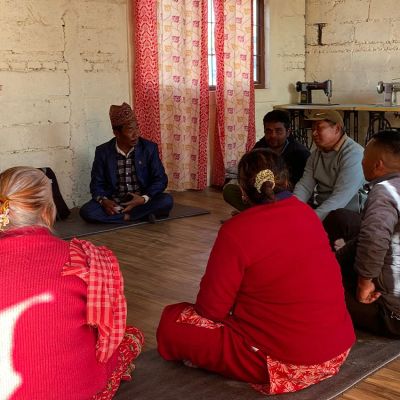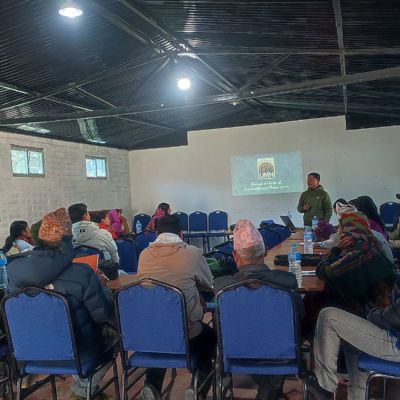Nepal is a landlocked country bordered by China and India, characterised by mountainous terrain that covers over 75% of its land area, sloping from the highlands in the north to the lowlands in the south. During the rainy season, landslides and floods frequently threaten communities. Nepal’s economic development is constrained not only by geopolitical issues, poor transportation infrastructure, and climate change, but also by deep-rooted challenges such as the caste system, Hindu nationalism, and gender inequality. These issues further exacerbate unequal resource distribution, marginalising vulnerable groups and forcing them into even harsher living conditions. Christians constitute less than 2% of the population and, along with other religious minorities and those at the lowest social strata, face discrimination and unfair treatment.
Although the majority of Nepalis rely on agriculture for their livelihoods, the country’s primary economic income derives mainly from tourism and remittances. However, repeated disruptions from the COVID-19 pandemic and lockdown measures, compounded by natural and environmental disasters, have drastically reduced incomes or completely deprived many of their livelihoods, leaving the poor even poorer. Amid a persistently weak economy and high inflation, many vulnerable individuals have migrated from rural areas to towns or overseas, seeking job opportunities. Yet, they often encounter various forms of oppression and exploitation, with some even trafficked by criminals into other regions or across the open border into India.
In multiple regions across Nepal, we serve impoverished and marginalised people who are despised or rejected, including the Dalits and other minority groups, families living in slums, high-risk youth and children, and women employed in adult entertainment venues. In the capital, Kathmandu, we improve water and sanitation conditions in slum communities, raise awareness of disaster preparedness, assist families with unstable incomes to develop alternative sources of livelihood, and ensure adequate nutrition for children. In central and southern Nepal, we support rural women to generate sustainable income, and we provide scholarships and educational support to children who are orphans or at risk of dropping out of school, safeguarding their educational opportunities and reducing their vulnerability to exploitation and trafficking. Additionally, we assist women working in urban adult entertainment venues by organising trade unions to advocate for safer working conditions and fair rights while also arranging vocational training for those wishing to exit the industry. Concurrently, we establish and support committees to operate resource centres, collaborating closely with relevant organisations and government departments to raise awareness about human trafficking, rescue and protect survivors, and help them reintegrate into society.
Moreover, we provide Integral Mission training to churches in remote areas of western Nepal, empowering leaders and believers to journey alongside vulnerable groups amidst their struggles and to act as salt and light. After receiving training, local brothers and sisters utilise their God-given strengths and resources, practically responding to their neighbours’ needs and transforming their communities.




